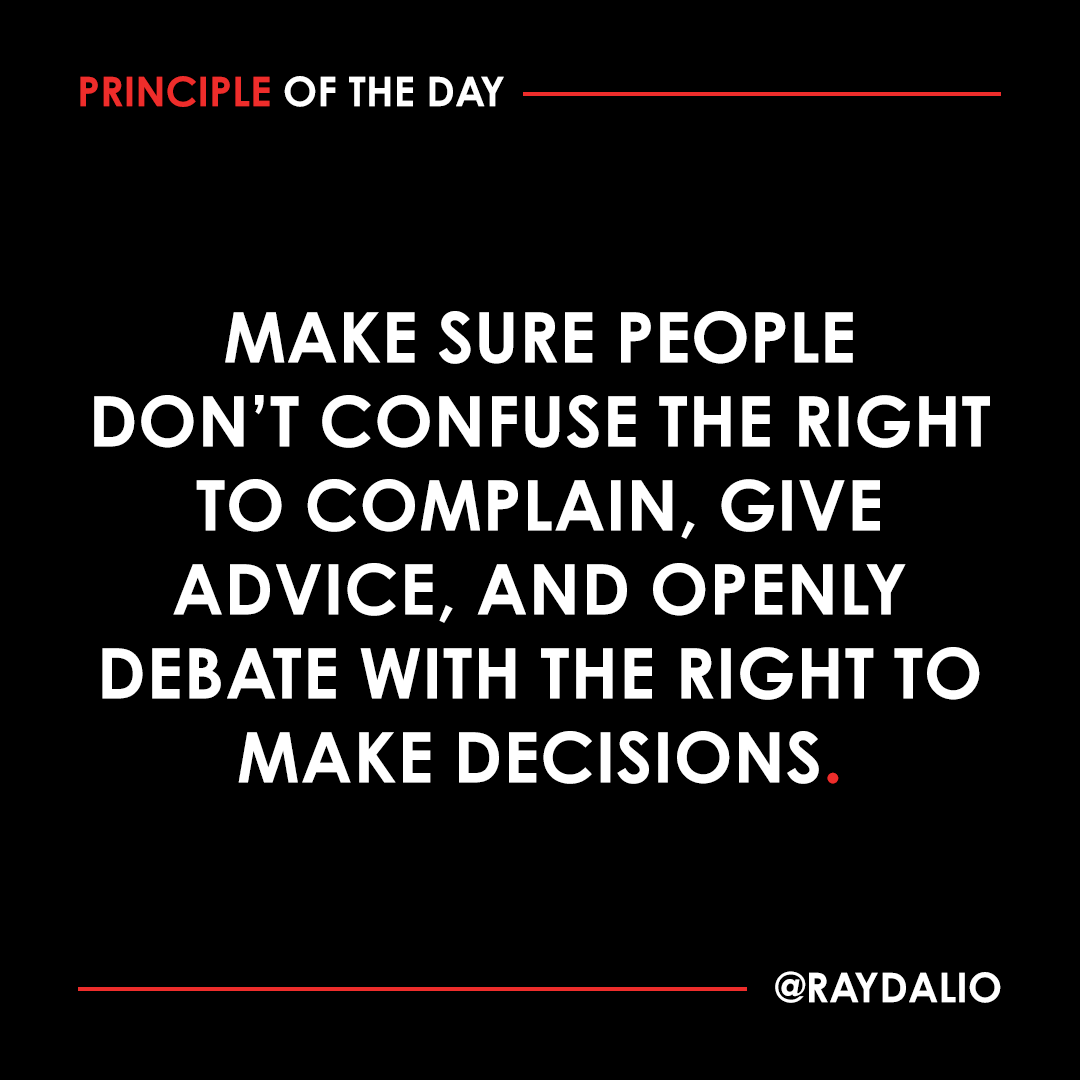
Ultimately, power will rule. This is true of any system. #principleoftheday (1/5) 

For example, it has repeatedly been shown that systems of government have only worked when those with the power value the principles behind the system more than they value their own personal objectives. (2/5)
When people have both enough power to undermine a system and a desire to get what they want that is greater than their desire to maintain the system, the system will fail. (3/5)
For that reason the power supporting the principles must be given only to people who value the principled way of operating more than their individual interests (or the interests of their faction)... (4/5)
...and people must be dealt with in a reasonable and considerate way so that the overwhelming majority will want and fight for that principle-based system. (5/5)
• • •
Missing some Tweet in this thread? You can try to
force a refresh










